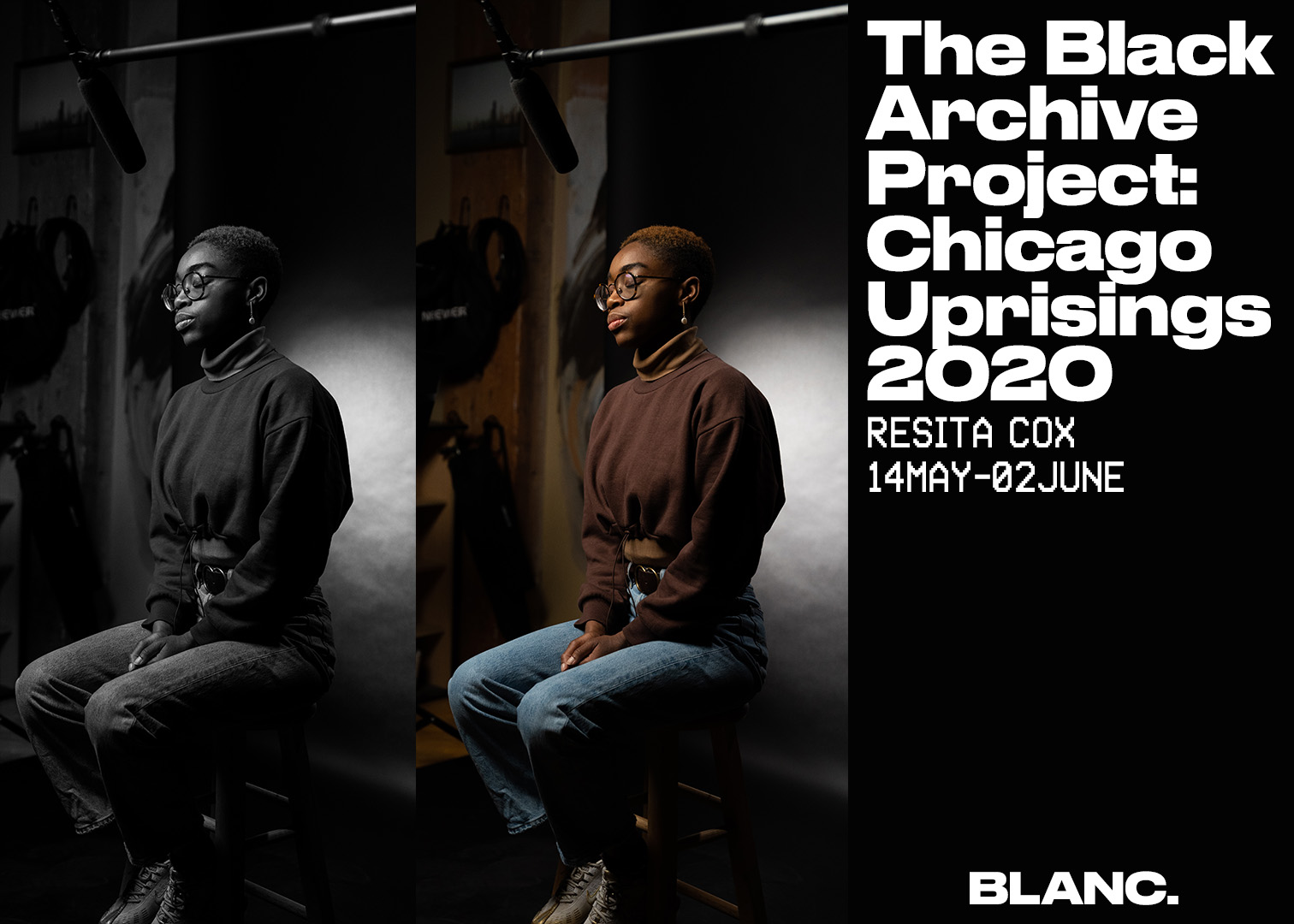Google ‘ Tulsa Massacre,’ and see the number of ‘reported deaths.’ 36. This brutal and senseless mass murdering of Black people was all but erased from history until recently. Those who survived to say more than 300 people were murdered this day–but no one really knows, as the bodies are still missing. Historical records also went missing. False accounts emerged.
The Black Archive Project: Chicago Uprisings is an attempt to restructure who holds the right to our history as Black people. It is important that we document our history as it unfolds so we stand a chance against the whiteness that will try to erase our experiences.
Artist Statement:
Resita Cox’s films are a poetic portrayal of her community’s irrepressible spirit and resilience in the face of racism. Her documentary film work is people-based, meaning it not only features unique, personal stories but also prioritizes relationships and is constantly working to reimagine an equitable filmmaking model. Resita tells stories within her communities, alongside her communities. By doing this, she aims to reimage [as much as possible] the power hierarchy that exists in filmmaking between director/creator and participant.
Resita uses documentary filmmaking as a means to archive the Black experience. She calls her body of work a ‘Black archive.’ If Black people don’t preserve their own history, it dissolves or is rewritten by people who adjust the narrative to suit them. Resita is interested in retrieving Black history that has been lost (or purposely buried) and using documentary film as a medium to connect the past, present, and future. Her films challenge traditional, linear story structures by combining poetry, observational film, written text, sound, and archival materials to create a visual and audio experience that mimics the layered complexities of the Black, lived experience. Resita strives to document the resiliency of Blackness in hopes that it not only gives birth to more resilience but most importantly, motivates people to take action

